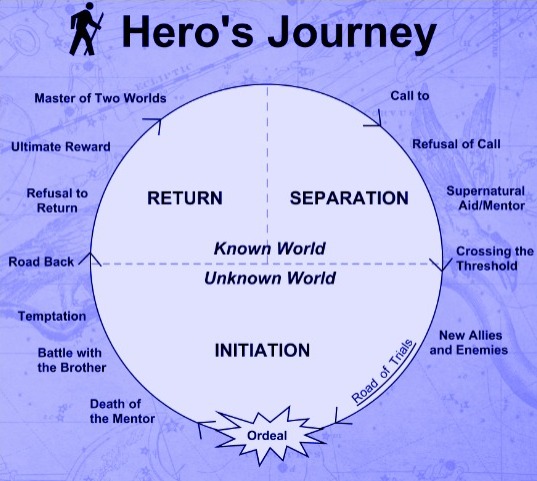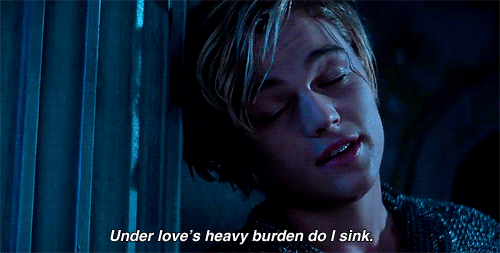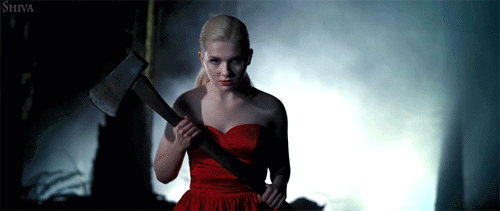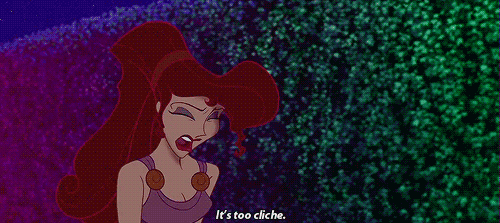
The year is 2023. We have wars, political crises, a virus that almost killed the entire world and I'm pretty sure if I were to look, I could find some aliens.
Music industry is repeating itself from twenty years before, as well as fashion, with a cool couple of changes, such as inclusivity and female voices. TV is not as streamed as it was, but we have streamers now, and Netflix is assaulting our wallets with their rising bills and very low catalogs, but we're still watching. Cinema, literature and art have changed so much because of all the new high technology, but also, I feel like I have seen pretty much everything there is to see.
Five years ago, quarantine used to be such a strange concept. I could watch a sci-fi series if I felt like experiencing it. Now that I actually have, I don't find these series so intriguing anymore.
So, how does a storyteller keep their audience surprised, when the audience has lived and experienced so much already? In this pseudo-apocalyptic world we live in, there's not much room for originality anymore. Not to even mention AI´s.
ALSO: Why is Literature so Important in a World that is Literally Dying?
But, is originality something to pursue? Or is it more like a ghost? Haunting everyone who dares to create, as something that might have existed in the past, lived free and made the world a better place, but is now nothing more than a whisper. A reminder. Something we don't dare to forget, so we cherish it forever.
Everything has been invented
Now, I'm not sure if that statement is right, but it sounded dramatic, so I'm keeping it.
Probably, fields like science don't have this problem. If we think about it, there's a lot to explore. Most of the ocean is still undiscovered territory, so who knows what lies below? The terrible creatures, the secret cities and the sunken ships. So much emptiness must be hiding something.
But we're not scientists, we are writers. And we don't seem to have sources yet to be discovered, not with all of these decades of dedicated writers behind us. Storytelling is even older than science, it's a human necessity, and since the first human walked the earth, the craft of telling lies was already being perfected.
ALSO: Where Do Ideas Come From?
So, now, we have a lot of technines, structures, and archetypes to help us tell better stories. But if all the stories carry the same bones, doesn't that give them the same DNA? If all stories are structured the same way, doesn't that make them all the same?
The hero's journey
I have to admit it, I'm a sucker for Joseph Campbell's theory.
If you're new to this, let me have the pleasure to introduce you to a beautiful piece of paper that can help you plot your story:

Similar to the three act structure, here we have three phases.
Separation begins when the hero, our protagonist, receives the call to adventure. This could be Harry's letter to Howards, or Katniss hearing Prim's name on the ruffle for The Hunger Games. Sometimes, the hero attempts to reject this call, mostly because receiving that invitation could kill them.
Getting out of the “normal world” – Harry´s mundane world, Katniss' house in the 12 district – is a door to the initiation. Leading to the dangers of the unknown, a new place. We meet allies, friends and enemies.
It's also the phase when we face the trials, that might not be literally trials, but a way for us, writers, to prepare our characters for what is to come. The battles, the climax, the revelation of the villain or the solving of the mystery, is going to happen at the end of this phase.
When everything has ended, then, there is the return: the hero comes home, but completely changed. They have learned and suffered so much, so nothing is quite the same now.
They got back, but they are not the same.
ALSO: How I Plan My Novels
Now that we have the basics, let's sink into why we used it.
It doesn't matter if you love the hero's journey, or if you prefer to see your story as a three or five act instead. jIt's okay. The thing is structure helps us create, is a guide to look when we don't know how to keep the story going. But this doesn't mean we're going to follow it step by step.
You need to know the rules in order to break them.
For example, a lot of heroes in fantasy stories don't have a mentor. Some of them die to be reborn, most of them don't. They do it in a metaphorical way, but it's not exactly what Joseph Campbell meant. Hero's Journey has been reinvented, as it's supposed to serve the writer, so you can do whatever you want with it.
Maybe your protagonist doesn't come home, maybe they die and stay dead forever, maybe they refuse to save the world and see the world ending through TV with a drink in a bar.
It's the innovation that keeps the wheel going. All stories are structured the same way, have the same backbone, but that doesn't mean you can't play with different things. Many authors tell the ending first, and build from there with flashbacks and jumps between past and present. Now this is very common, but I imagined that the first time someone did it, there was a huge bunch of people who didn't like it.
Shakespeare starts his play saying that Romeo and Juliet died in the end, but that didn't make it any less interesting, didn't it? It's a world-wide known love story and everyone is familiar with it, has been adapted in so many ways that is hard to keep count and I like to think it initiated a very common trope these days (I mean, a couple that goes from hate to love, where have I seen that?)

We never know how things will turn out in the future, where a little experimentation can take us. But if you want to be original now, I would start by learning the structures that we used to tell a story and why they are so effective. Then, I would shake the cage a little bit.
Don't be afraid of being unconventional, of making things differently as you were told. Use your intuition, and if you have an idea, keep asking yourself questions that could lead to strange perspectives. Think out of the box, as people say.
A box full of tools
Keep in mind that structure, archetypes and even tropes are there to help you.
But instead of being plain, repetitive and boring, they can be molded into anything you want. Using these ideas will not make you less original, but underestimating and trying to escape them will.
Think about it like a tool box, you think you can build a house without one? No architect would dare. But even though they all use the same tools, they all end up with different things; marvelous houses, the tallest towers. It's your job to understand them and shape them into something else, something greater.
The evolution of the trope
What is a trope then? I could explain it to you, or I could say: are you an enemies to lovers or a friends to lovers person? Forbidden romance, maybe? One of my favorite tropes is found families. And this suddenly becomes a TikTok script from a gen-z booktuber.
ALSO: Why Do We Write What We Write
But what do all of these things mean? You probably know what an enemies to lovers is, I'm sure. And you know it because tropes have become standardized by their frequent use and repetition. Every genre has their tropes, for instance; comedy has a sidekick, romance has in-love-with-my-best-friend's-brother, terror has the “final girl” trope.

Tropes change with time. As society grows and transforms, it expects different things from the stories it consumes.
Back in the 2000, triangle romances used to be very common, when a girl finds herself in trouble because she has to choose between two guys: the handsome, supportive and emotional one, and the troubled man who is dangerous and torturing and supposedly more exciting.
But nowadays… triangle romances are not as popular, because the girl can have both, or none. She can choose herself and her career, for example.
Or, in a more controversial way, she can be in a polyamorous relationship and date both guys. Understanding how society works leads us to make changes in the way we tell our story. Not to be politically correct, but to question why we do the things we do and how to evoque a change.
Tropes versus clichés
If tropes are the expectations readers have in a story, then they've developed into a source for writers. A way we have to engage an audience. Holy water to the last best-seller writers these past years.
But the problem is, if one author uses a trope and it's a success, then most of the writers would want to do the same thing. How do we avoid our work from becoming a cliché, something that has been done not a hundred but a thousand times?

First, find a voice. An authorial voice that is only yours, that stands out. Maybe you tell the happiest stories in a sad tone, maybe you tell the saddest stories in a happy one. Maybe you're ironic, or too obsessive.
Whatever you are, make sure it stands out. Because two people can tell the same story and still find a way to own it, so when you're writing a trope, make sure you bring something to the table that is unique, that only you can deliver.
ALSO: How to Immerse Readers in Your Story
Another tip is the question: what if? We take a common trope like fake dating and we destroy it.
What if… they fake their love, end up getting married and realize they only like the pretending version of each other, but not their real selves. What if they fake a marriage so good that the government hires them to be spies? What if they fake their love but it is not believable, so her friends start to create theories about how she's being forced and suddenly, they kill him?
A cliché is something that repeats itself until we are sick of it. And this tends to happen because writers are afraid to take risks. And I get it, you're afraid your audience is gonna go away. But the only way out of a cliché is presenting a story that might not be completely new, but honest in its own way. Honesty means you are fully yourself, and here is where your story becomes unique.
A trope, when well used, is not even perceived. Because the characters, the plot and the narrative voice are stronger than the trope itself.
But, is originality something you should really pursue?
After all of this, I have the obligation to tell you what I truly believe. Right? I mean, it's only fair: you gave me your time, in exchange, I have to be very honest. So… Here it goes:
I don't really believe originality exists anymore.
I think you can be more or less original than other people, but I don't think such a concept still remains relevant. Originality is preserved in things that are new. In a world as lived as ours, I don't think there's much more to invent. At least, not from the perspective of literature.
And hopefully, I'm wrong. But this doesn't mean that nothing would surprise us anymore. Just because originality is a thing from the past, it doesn't mean everything is lost.
Actually, I think that obsessing over originality means the work will suffer.
When authors think more about how to make a play that is new and experimental and everything you ever wanted, they lose focus. I believe, when authors let go of the pressure of being everything, there's a true freedom to create.
ALSO: Love, Hate, and Inner Sabotage
When you're not worrying about how your work is gonna be perceived by the audience, it's when you allow yourself to be free with your ideas. And this is the way most stories get to be really experimental.
The important thing nowadays is not a story that is original enough for an audience, but whether it's entertaining, well constructed. If it actually makes you feel something.
As a writer, you will choose what it is that you want to pursue in your career. The way you want to be remembered. But let me ask you this question now, as we are in confidence: what do you value most? Something that surprised you, or something that you truly connected with?
There are a lot of really original things that I don't like because I can't connect with them. These days, when we see so many terrible things on the news, I think stories that can make you laugh, cry or think, are way more interesting than original ones.
If you have to sacrifice meaning, passion, or even yourself, in order to make something new and innovative, then originality is overestimated. It's much more meaningful if you have fun with the process, forget about the impact or the reaction, and just do it in your own way.
After all, it's not a writer's task to control the way audiences are gonna react to our work. Our only duty is to express ourselves as shamelessly and honestly as we can.
Juliana Palermo
Written for The Plottery
Juliana Palermo lives in Buenos Aires, Argentina. She's 22 but hasn't learned how to do her taxes yet. She works as a freelance editor and book cover designer, but you will find her drinking coffee and daydreaming during working hours. She is currently writing her first fantasy novel. You can find her as @julippalermo both on Instagram and Twitter.
If you need her, you can say her name three times in front of a mirror and she will appear with a cynical smile. But let me warn you, her jokes are not as funny as she promised, and if you invited her in, there's a chance she will never leave.










